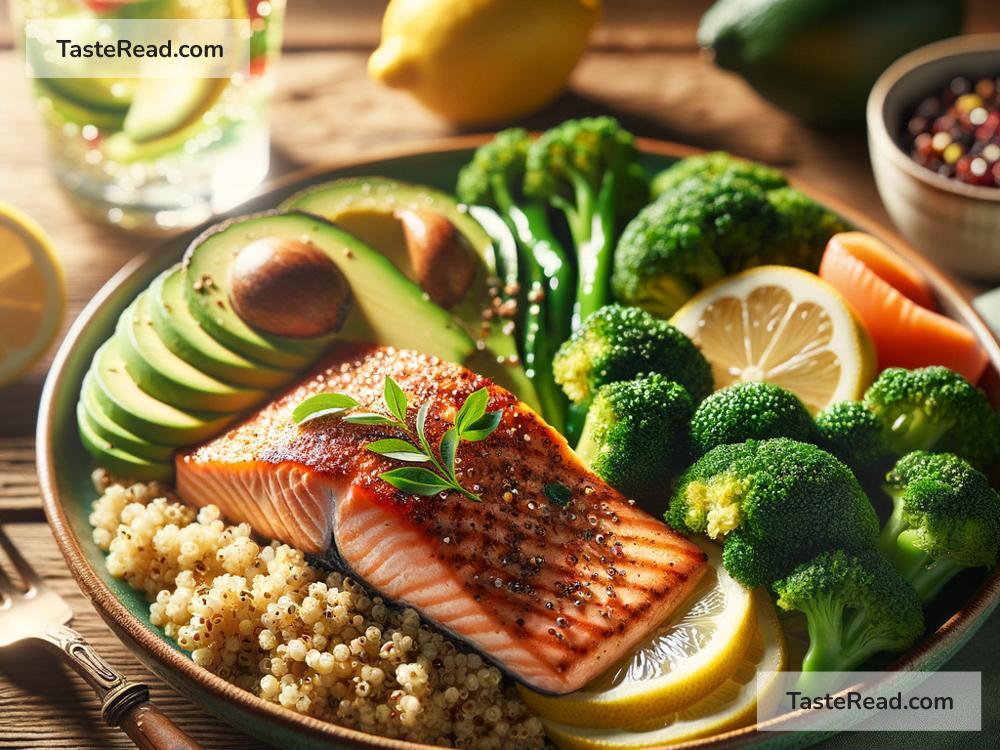The Benefits of a Balanced Diet for Cholesterol Management: Supporting Heart Health
Heart health is important for everyone, and keeping cholesterol levels in check is a key part of it. Cholesterol gets a lot of attention because too much of it can harm your heart and lead to serious health problems like heart disease. The good news is that one of the best ways to manage your cholesterol levels is through your diet. A balanced diet helps lower bad cholesterol, improve good cholesterol, and keeps your heart healthy.
In this article, we’ll explore the benefits of eating a balanced diet for better cholesterol management. We’ll break it down into simple parts so you can see how easy it is to make heart-friendly changes to your meals.
What Is Cholesterol?
Cholesterol is a waxy substance found in your blood. Your body needs some cholesterol to build cells, make hormones, and do other important jobs. There are two main types of cholesterol:
1. LDL (Low-Density Lipoprotein): Often called “bad cholesterol,” high levels of LDL can build up in your blood vessels, forming plaques that block the flow of blood to your heart.
2. HDL (High-Density Lipoprotein): Known as “good cholesterol,” HDL helps remove excess LDL from your blood vessels, protecting your heart.
While cholesterol is essential, having too much LDL can increase your risk of heart problems. This is where a balanced diet plays a big role.
How Does a Balanced Diet Help Cholesterol Levels?
Eating a balanced diet means including a mix of healthy foods while limiting unhealthy ones. This approach can lower your LDL cholesterol and boost your HDL cholesterol, making it easier for your body to keep things in balance.
Here’s why a balanced diet works:
1. Fewer Saturated Fats: Foods like fatty meats, butter, and full-fat dairy products are high in saturated fats, which raise your LDL cholesterol. Switching to lean proteins, low-fat dairy, and plant-based options can help reduce your saturated fat intake.
2. More Fiber: Fiber helps lower cholesterol by binding it in your digestive system and carrying it out of your body. Foods like oats, barley, beans, vegetables, and fruits are rich in fiber and great for managing cholesterol.
3. Healthy Fats: Not all fats are bad. Unsaturated fats, found in avocados, nuts, seeds, and olive oil, can boost your HDL cholesterol while lowering LDL levels.
4. Avoid Trans Fats: Trans fats are the worst kind of fats and are found in processed and fried foods. They raise LDL cholesterol and lower HDL cholesterol. Avoiding trans fats can improve your cholesterol levels.
Heart-Healthy Foods to Include in Your Diet
To lower cholesterol and support your heart, focus on adding these foods to your meals:
- Oats and Whole Grains: Starting your day with oatmeal is a simple way to get fiber that helps lower bad cholesterol. Whole grains like brown rice, quinoa, and whole wheat bread are also excellent choices.
- Fruits and Vegetables: Fresh fruits and vegetables are packed with vitamins, antioxidants, and fiber that support healthy cholesterol levels. Berries, oranges, spinach, broccoli, and carrots are particularly heart-friendly.
- Nuts and Seeds: Almonds, walnuts, flaxseeds, and chia seeds contain healthy fats and can improve cholesterol levels. Just watch your portion sizes to avoid eating too many calories.
- Fish: Fatty fish like salmon, mackerel, and tuna are rich in omega-3 fatty acids, which boost good cholesterol and protect your heart. Aim for two servings a week.
- Legumes: Beans, lentils, chickpeas, and peas are affordable and rich in fiber, making them excellent for cholesterol management.
- Olive Oil: Replace butter or margarine with olive oil when cooking to add heart-friendly fats to your meals.
What Foods to Avoid
Eating the right foods is only half the puzzle. You also need to limit foods that harm your cholesterol levels. These include:
1. Processed and Fried Foods: Chips, cookies, and fried snacks often contain trans fats that raise bad cholesterol.
2. Sugary Treats: Cakes, candies, and sodas can lead to weight gain and harm your heart health.
3. Red Meat: Too much red meat can increase LDL cholesterol due to the saturated fat. Opt for leaner protein sources like chicken or plant-based alternatives.
Other Tips for Cholesterol Management
A balanced diet is the foundation of good cholesterol levels, but there are other lifestyle changes that can help:
– Exercise Regularly: Physical activity improves HDL cholesterol and helps maintain a healthy weight.
– Maintain a Healthy Weight: Being overweight makes it harder to manage cholesterol levels, so try to stay within a healthy range.
– Quit Smoking: Smoking reduces your HDL cholesterol and makes it harder to protect your heart.
Conclusion: Small Changes, Big Benefits
Managing cholesterol doesn’t have to be overwhelming. A balanced diet filled with heart-healthy foods like whole grains, fruits, vegetables, fish, and nuts is an easy and effective way to keep your cholesterol in check. At the same time, cutting back on processed foods, sugary treats, and saturated fats can make a big difference.
Remember, small changes in your diet can lead to big benefits for your heart health over time. Start by adding one or two healthy foods to your meals or swapping out unhealthy ingredients for better ones. Your heart will thank you for it!


